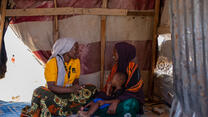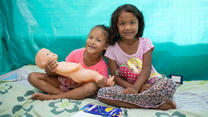The humanitarian landscape is changing – crises have become more protracted and complex, characterised by greater barriers to humanitarian assistance and an increasing variety of needs. Business-led innovation has been identified by the Business Refugee Action Network (BRAN) as one promising route to improving the economic wellbeing of refugees. To this end, a group of businesses in the network have implemented new approaches. The areas explored have been: integrating refugees into supply chains, opportunities for entrepreneurship and facilitating remote work for refugees.
This synthesis report explores the innovative approaches implemented by Ben & Jerry’s, Virgin Megastore Middle East, Levi Strauss & Co. and the social enterprise, NaTakallam. It draws on the feedback and analysis of these innovative approaches generated by wider BRAN membership during BRAN’s workshops conducted during 2019 – 2020, and reflects on the impact of COVID-19 on businesses trialing new approaches.
COVID-19
The network found that the COVID-19 pandemic has affected the operation of all the innovative approaches outlined above and generated learnings for the future. Some common themes are outlined below.
- The pivot to digital – whether through strengthening e-commerce opportunities or delivering training online, investing in this space has been key to the delivery of these innovations.
- Altered capacity of the programmes – for instance, production lines were impacted by social distancing and the reassignment of refugee tailors to make masks. This led to the review of anticipated timings and quantity of refugee made products.
- Impact on employers and the private sector – while the innovations explored here have proved flexible and resilient, it was noted that the private sector as a whole has been significantly impacted by COVID-19 and this has affected opportunities for innovation.
Opportunities for replication and scale
Despite the challenges posed by COVID-19, business appetite to scale new approaches in support of refugees’ economic wellbeing remains strong among BRAN members. Themes identified as key to driving replication and scale were:
- Generating higher levels of demand for refugee made products or services;
- Increased collaboration between corporates and value based social enterprises/NGOs;
- Identifying and securing financial models that ensure the sustainability of the innovations.
Next steps
BRAN has identified the following as next steps:
- To facilitate the collaboration and exchange of expertise between businesses and other organisations in the network to support the expansion or replication of these initiatives;
- To facilitate the exploration of new ideas and the business-led identification of pilots. This could be done through the network developing a ‘BRAN Lab’ with its members.


